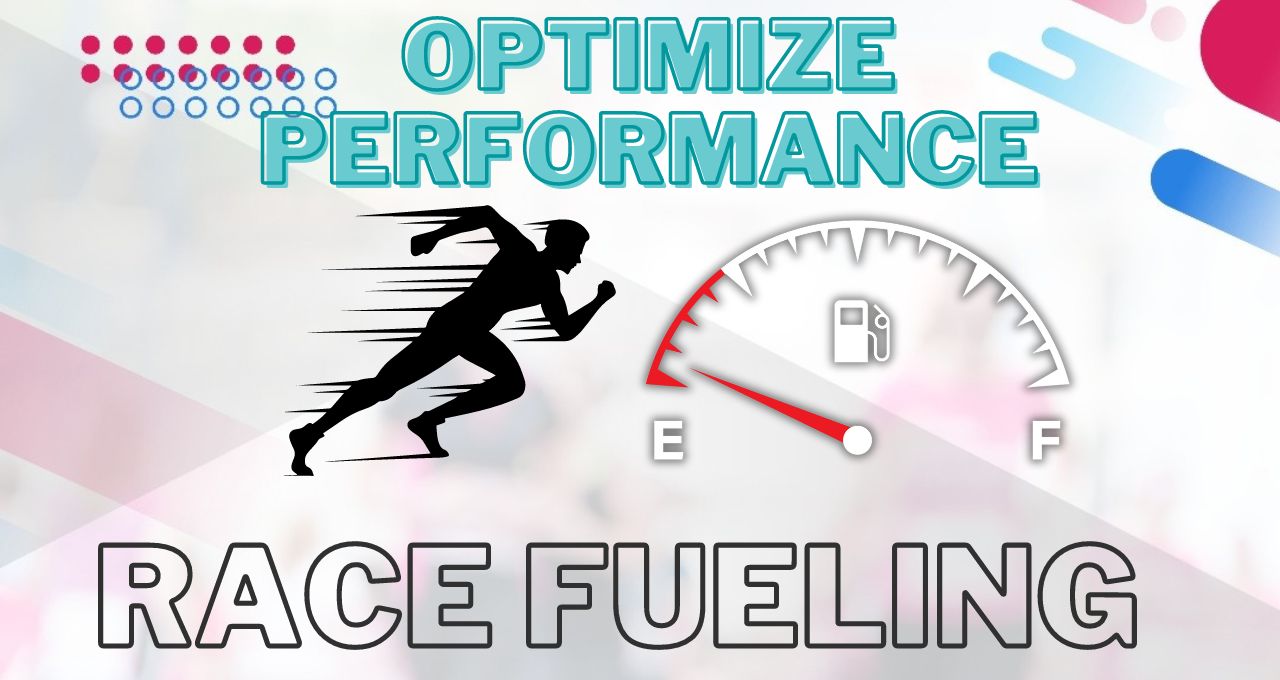Your cart is currently empty!

Optimizing Performance: Effective Race Fueling Strategies for Runners
/
Race Fueling Strategies for Runners
Fueling strategies can make or break a race for runners, whether they’re training for a 5k, a marathon, or an ultra-distance event. The body’s energy demands increase significantly during running, and proper nutrition is crucial for optimal performance and recovery. Here, we delve into the key components of race fueling strategies, covering pre-race, during the race, and post-race nutrition.

Pre-Race Fueling
The foundation of an effective race fueling strategy is laid well before race day. Carbohydrate loading, or “carb loading,” is a popular approach among endurance athletes. The concept is to increase the storage of glycogen in muscles, providing a readily available energy source during the race. Typically, carb loading begins about three days before the event, with runners increasing their carbohydrate intake to about 70-75% of their total caloric intake. Foods like pasta, rice, bread, and starchy vegetables become dietary staples.

In addition to carbohydrate intake, hydration plays a crucial role. Runners should aim to be well-hydrated in the days leading up to the race, avoiding excessive caffeine and alcohol, which can contribute to dehydration. On race day morning, it’s advisable to consume a balanced meal rich in carbohydrates, moderate in protein, and low in fat approximately 2-3 hours before the start. This meal should include easily digestible foods such as oatmeal, bananas, or a bagel with peanut butter.
During the Race
During the race, the primary goal is to maintain energy levels and prevent dehydration. The body primarily relies on carbohydrates for fuel, so consuming easily digestible carbohydrates is essential. Sports drinks, gels, chews, and bars are common choices among runners. These products are designed to provide quick energy without causing digestive issues.

The general guideline is to consume 30-60 grams of carbohydrates per hour during endurance events. This can vary based on the runner’s body weight, pace, and individual tolerance. For races lasting longer than an hour, such as marathons, it’s crucial to start fueling early and maintain a consistent intake throughout the race. Waiting too long to refuel can lead to energy depletion and hitting the dreaded “wall.”
Hydration is equally important. Runners should aim to drink fluids at regular intervals, roughly every 15-20 minutes. The amount can vary depending on the weather, sweat rate, and individual needs, but a general recommendation is to consume about 400-800 ml of fluid per hour. Electrolyte replacement is also essential, especially for races in hot and humid conditions. Sports drinks that contain sodium, potassium, and magnesium can help maintain electrolyte balance and prevent cramping.

Post-Race Recovery
Post-race fueling focuses on recovery and replenishing depleted glycogen stores. The first 30 minutes to an hour after finishing the race is considered the “golden window” for recovery nutrition. During this period, muscles are most receptive to nutrient absorption, making it an ideal time to consume a combination of carbohydrates and protein. Aim for a 3:1 or 4:1 ratio of carbohydrates to protein. Chocolate milk, a banana with a protein shake, or a chicken sandwich can be excellent choices.
Hydration continues to be important post-race. Rehydrating with water and electrolyte-rich beverages can help restore fluid balance. Monitoring urine color can be a practical way to gauge hydration status; pale yellow urine indicates adequate hydration, while dark yellow suggests the need for more fluids.
Tailoring Strategies to Individual Needs
While these general guidelines provide a solid foundation, it’s important to recognize that each runner is unique. Factors such as body size, fitness level, metabolic rate, and personal preferences play a significant role in determining the most effective fueling strategy. Experimentation during training is key to finding what works best. Runners should try different foods, beverages, and timing strategies to identify what their bodies respond to positively.
For those with specific dietary requirements or sensitivities, such as vegans, individuals with gluten intolerance, or those with IBS, additional planning is necessary. Fortunately, the market offers a wide range of specialized products catering to various dietary needs, making it easier for every runner to find suitable options.
Race fueling strategies are a critical component of a runner’s preparation and performance. From pre-race carb loading and hydration to during-race energy maintenance and post-race recovery, each stage requires careful planning and individualization. By understanding and implementing effective fueling strategies, runners can optimize their energy levels, enhance performance, and speed up recovery, ultimately making the race experience more enjoyable and successful. Through trial, adjustment, and consistent practice, each runner can find the perfect formula to fuel their journey across the finish line.

